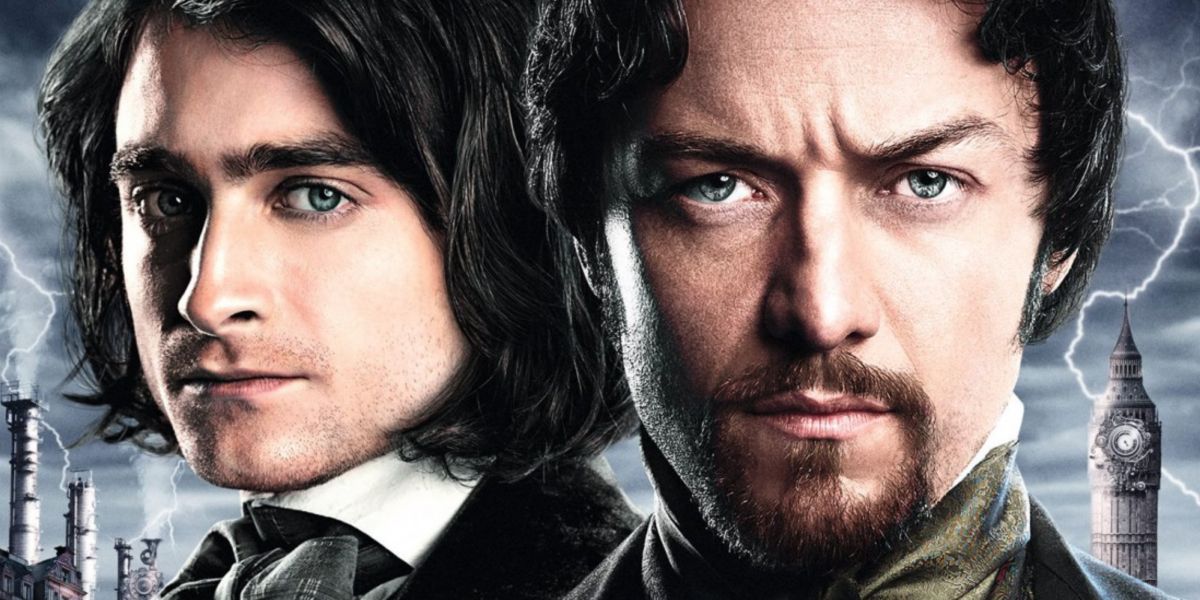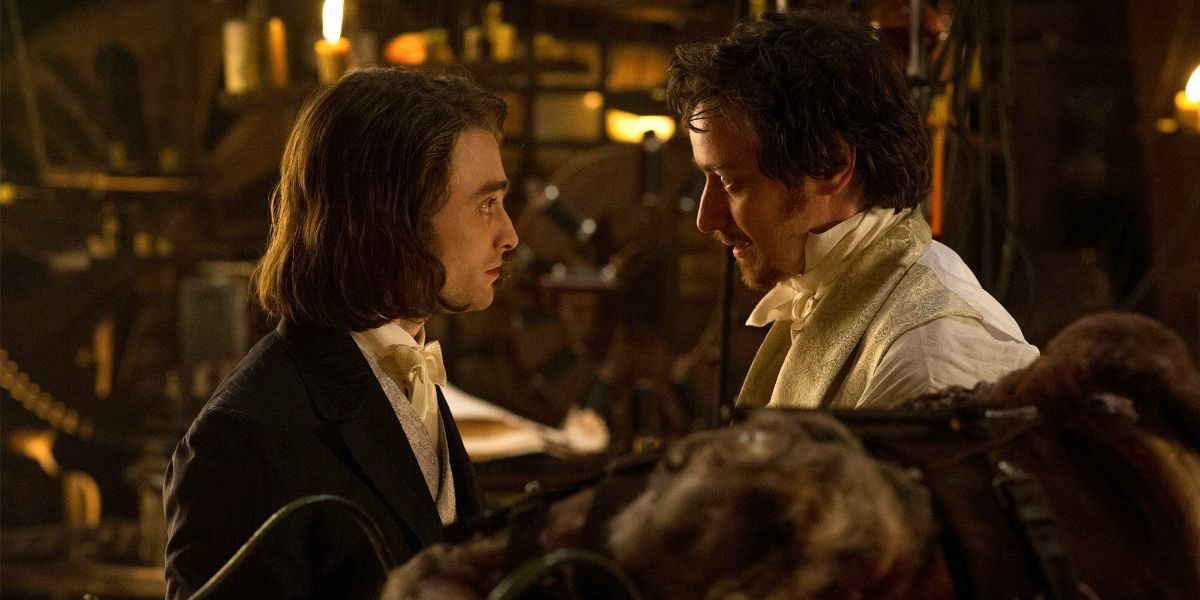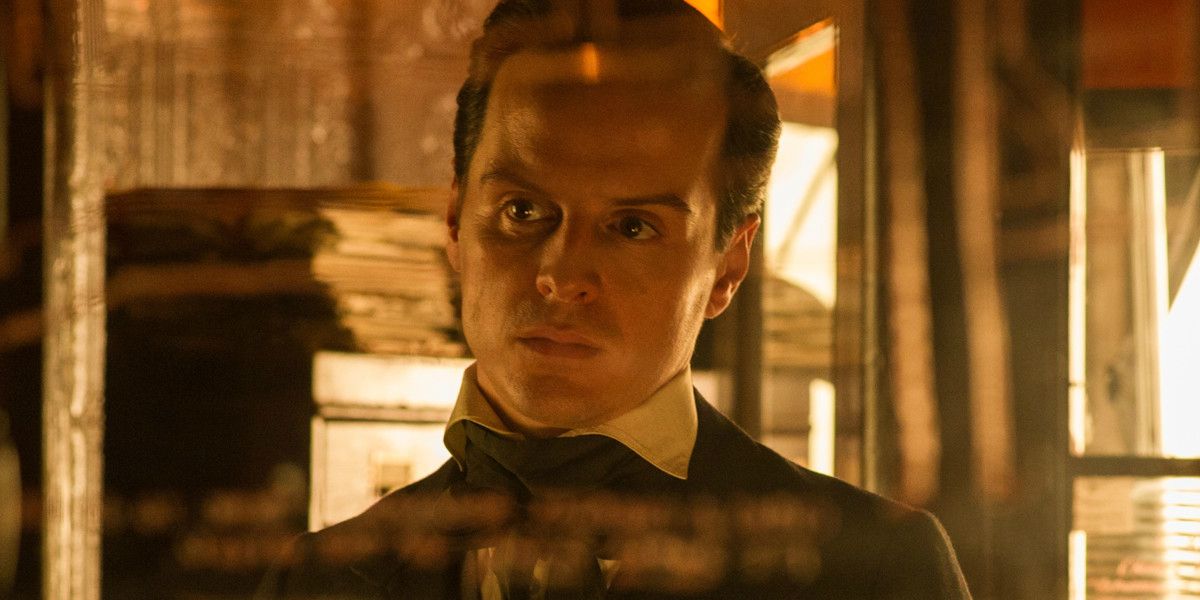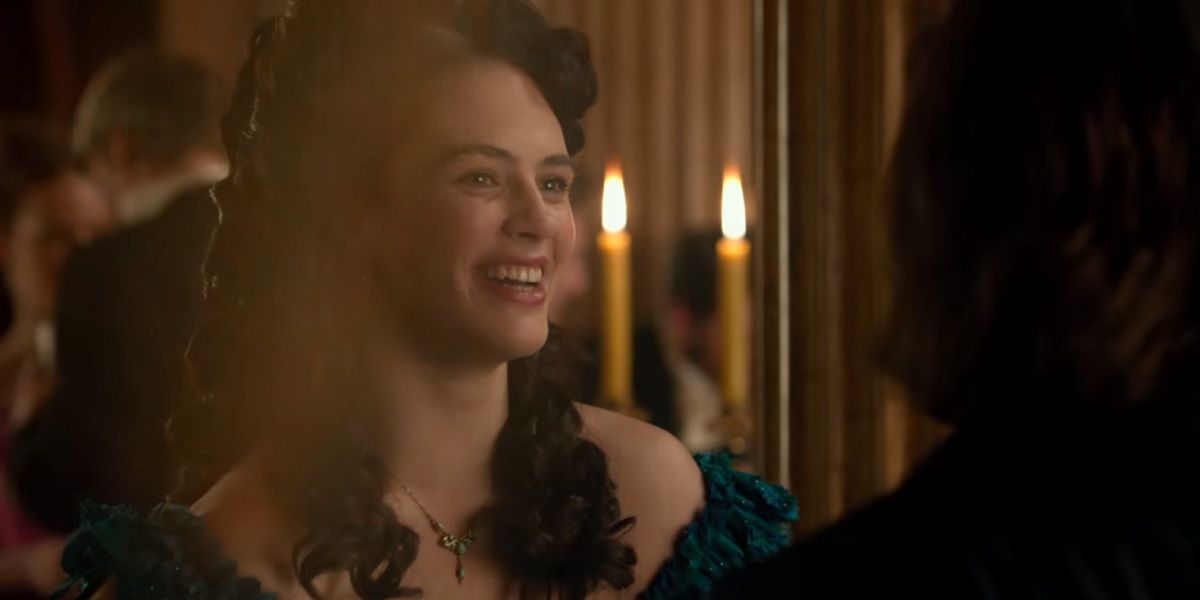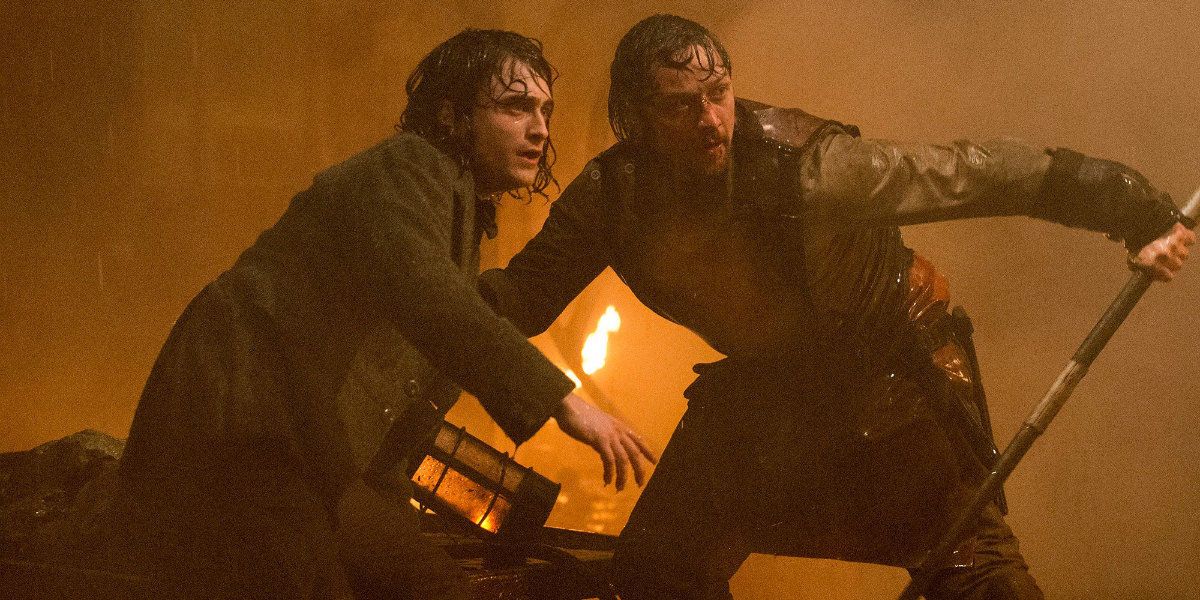Victor Frankenstein is an entertainingly kooky, but otherwise messy and slapdash re-imagining of the Frankenstein mythos.
Victor Frankenstein takes place in 19th century England, where a nameless, hunched-over young man (Daniel Radcliffe) spends his free time studying and learning about human anatomy - when he's not performing as a lowly circus clown and being cruelly mocked by his peers (both inside and outside the ring). An incident during one of the circus' shows leads to a encounter between the young clown and an eccentric medical student named Victor Frankenstein (James McAvoy), who quickly recognizes a kindred spirit in the brilliant, but abused, nameless clown and soon after rescues him from his old life.
Victor, having deduced that his new companion isn't really a hunchback, cures the latter of his actual physical ailment and provides him with new clothes, a new name (Igor, that of Victor's generally-absent roommate), and a new job in assisting Victor with his experiments to re-animate dead body tissue via electricity. However, as Victor's actions draw unwanted attention from one Detective Inspector Roderick Turpin (Andrew Scott), Igor begins to wonder: just how far will Victor go, with his efforts to create life from death through the power of science?
Written by Max Landis (Chronicle, American Ultra), Victor Frankenstein isn't so much a re-imagining of Mary Shelley's iconic 1818 sci-fi/horror novel, "Frankenstein; or, The Modern Prometheus"; rather, it's an origin story for the eponymous character, as seen from the perspective of Igor (who didn't originate in Shelley's source book, but rather in a subsequent movie adaptation). Unfortunately, like many other origin stories that've been crafted for famous literary characters in the past (one recent movie example being Pan), Victor Frankenstein falls short at offering fresh insight on its namesake and/or showing the Frankenstein mythology's themes and ideas in a creative, new light.
The main problem is that Landis' Victor Frankenstein screen story and script (the version that made it to the big screen, anyway) blends a variety of genre elements - Victorian bromantic adventure, period horror/thriller, dark comedy, romantic melodrama - yet never devotes enough time to fully developing any one of these components, much less successfully crafting a cohesive, tonally-consistent, narrative tapestry from its story threads. Victor Frankenstein, similar to the Landis-scripted American Ultra, does offer entertainment value thanks to its erratic design, but ends up being even more disjointed than the latter - seeing as it lacks a solid emotional core to hold the whole thing together.
Paul McGuigan's directorial approach on Victor Frankenstein brings to mind his work on Sherlock (he's directed four of the series' nine episodes to date); not only because his Frankenstein film also revolves around a fast-talking mad genius and his often befuddled comrade, but also with regard to the stylistic flourishes like the use of on-screen graphics (here, used to illustrate Victor and Igor's fine knowledge of anatomy), fast-cutting montages, and other stylish, if quirky, touches (see the opening and closing title cards). Problem is, Victor Frankenstein also looks like a glorified TV movie, when it regards the framing choices and camera setups used by McGuigan and cinematographer Fabian Wagner (whose background is primarily in television, as it were).
Victor Frankenstein relies on a murky color palette, in an effort to seamlessly blend the practical sets and the digital components of its 19th century setting - itself, a semi-fantastical version of that century that has a steampunk-lite aesthetic. The film nonetheless has a distinctly "budget look" when the green screen backdrops and CGI scenery tends to stick out; despite solid practical production design work by Eve Stewart (Les Miserables), the overall effect is that Victor Frankenstein resembles a cheaper version of Guy Ritchie's Sherlock Holmes movies (and their version of Victorian England), visually speaking. On top of that, Victor Frankenstein feels like it was chopped up during post-production, giving rise to a film that has a frantic pace and is clumsily structured. The film saw multiple release date delays and there are trailer clips notably absent from the theatrical cut, further suggesting that Victor Frankenstein went through heavy post-filming revisions.
The relationship between Radcliffe's Igor and McAvoy's Frankenstein is the focus of Victor Frankenstein, but the friendship isn't compelling enough to make up for the movie's other shortcomings. Igor is first presented as a potential equal for Victor, but Radcliffe spends most of the film serving as the wide-eyed witness to the latter's shenanigans, as well as his conscience - meaning, the buddy dynamic between them isn't equally interesting on both sides (a la Sherlock/Watson). McAvoy, by comparison, hams it up as the obsessed pre-Dr. Frankenstein, turning in a delightfully over the top performance in the process. Indeed, the film as a whole might have been better if everyone played their roles as tongue in cheek as McAvoy does.
Jessica Brown Findlay (Downton Abbey) costars in Victor Frankenstein as Lorelei, the former trapeze artist whom Igor has fallen in love with, but her character is little more than a generic love interest for Radcliffe's character - one who has limited impact on the larger story, all things considered. Meanwhile, Sherlock's Andrew Scott plays Inspector Turpin, the foil to Victor whose religious devotion is equal to the latter's devotion to science; though, both Scott and McAvoy's characters are far too cartoonish (in their own ways) for their philosophical battle of wills to be all that intriguing. Equally hammy is Freddie Fox (Banana) as Finnegan, Victor's financier who has devious intentions of his own, and Charles Dance (Game of Thrones) in a brief appearance as Victor's father, who shows up to establish the latter's - you guessed it - tragic backstory.
Victor Frankenstein is an entertainingly kooky, but otherwise messy and slapdash re-imagining of the Frankenstein mythos, for these reasons. It has a crackling energy and creative ambitions in mind but much like its namesake, the film turns out to be more unstable and unhinged than inspired. For these reasons, Victor Frankenstein is a good future rental option or something to catch on cable/Netflix, but there's not much reason to give this variation on Mary Shelley's classic a look in theaters.
TRAILER
Victor Frankenstein is now playing in U.S. theaters nation-wide. It is 109 minutes long and is Rated PG-13 for macabre images, violence and a sequence of destruction.
Let us know what you thought of the film in the comment section below.

